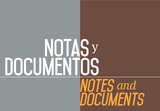| dc.rights.license | http://creativecommons.org/licenses/by-nc-sa/3.0/ve/ | |
| dc.contributor.author | Duarte, Paulo | |
| dc.date.accessioned | 2016-12-06T17:14:52Z | |
| dc.date.available | 2016-12-06T17:14:52Z | |
| dc.date.issued | 2016-12 | |
| dc.identifier.uri | http://www.saber.ula.ve/handle/123456789/42732 | |
| dc.description.abstract | Este artigo visa destacar a importância da questão hídrica e alimentar
na China. O principal argumento reside no facto de a escassez e poluição
da água na China, bem como a necessidade de alimentar o país mais
populoso do mundo, constituírem, mais que nunca, desafios incontornáveis
para Pequim. A assimetria na distribuição interna dos recursos
hídricos, juntamente com a referida escassez e poluição destes, afetam
necessariamente a prática agrícola na China, que procura soluções urgentes.
Prova disso, como se procurará demonstrar, o Partido tem incentivado
as empresas estatais e privadas chinesas a uma massiva operação de
aquisição e leasing de terras à escala global, que nem sempre suscita
reações uniformes nos países anfitriões. Terminaremos com algumas
recomendações geoestratégicas face à gestão da (in)segurança alimentar
e hídrica chinesa, destacando, entre outros, a burocracia asfixiante e a
ineficácia da governança hídrica na China. O método qualitativo (análise
hermenêutica) é a metodologia que guiará a presente investigação. | es_VE |
| dc.language.iso | es | es_VE |
| dc.publisher | SABER-ULA | es_VE |
| dc.rights | info:eu-repo/semantics/openAccess | |
| dc.subject | China | es_VE |
| dc.subject | Segurança alimentar e hídrica | es_VE |
| dc.subject | Partido Comunista | es_VE |
| dc.title | Ahuyentando sus espantapájaros: una evaluación de la (in)seguridad alimentaria e hídrica en China | es_VE |
| dc.title.alternative | Driving Away its Scarecrows: an assessment of China’s food and water (in)security | es_VE |
| dc.type | info:eu-repo/semantics/article | |
| dc.description.abstract1 | This article aims to highlight the importance of the water and food issue
in China. The main argument is that the water shortage and pollution in
China, as well as the need to feed the most populous country in the world
are, more than ever, unavoidable challenges to Beijing. The asymmetry
in internal distribution of water resources, along with their shortage and
pollution, necessarily affect the agricultural practice in China, which seeks
urgent solutions. As proof of this, as we will try to demonstrate, the party
has encouraged Chinese State-owned and private companies to a massive
operation of land leasing and acquisition on a global scale, which does not
always raises uniform reactions in host countries, as we will explain. We
will finish with some geostrategic recommendations with regard to the
management of Chinese food and water (in) security, highlighting, among
others, the suffocating bureaucracy and the inefficiency of water governance
in China. The qualitative method (hermeneutic analysis) is the methodology
that will guide this investigation. | es_VE |
| dc.description.colacion | 298 - 317 | es_VE |
| dc.description.email | duartebrardo@gmail.com | es_VE |
| dc.description.frecuencia | Semestral | |
| dc.identifier.edepositolegal | ppi 2012ME4104 | |
| dc.identifier.eissn | 2244-8853 | |
| dc.publisher.pais | Venezuela | es_VE |
| dc.subject.facultad | Facultad de Ciencias Forestales y Ambientales | es_VE |
| dc.subject.institutoinvestigacion | Instituto de Geografía y Conservación de los Recursos Naturales (IGCRN) | |
| dc.subject.keywords | China | es_VE |
| dc.subject.keywords | Food and water security | es_VE |
| dc.subject.keywords | Communist Party | es_VE |
| dc.subject.seccion | Revista Geográfica Venezolana: Notas y Documentos | es_VE |
| dc.subject.thematiccategory | Geografía | es_VE |
| dc.subject.tipo | Revistas | es_VE |
| dc.type.media | Texto | es_VE |


